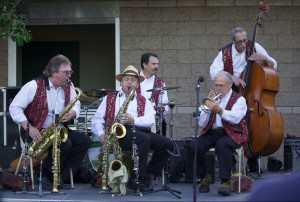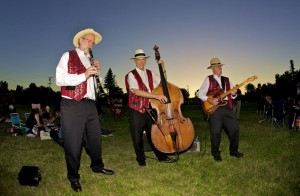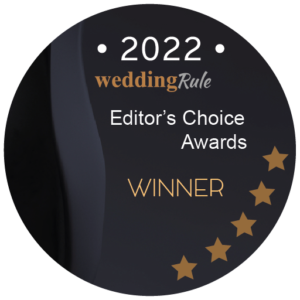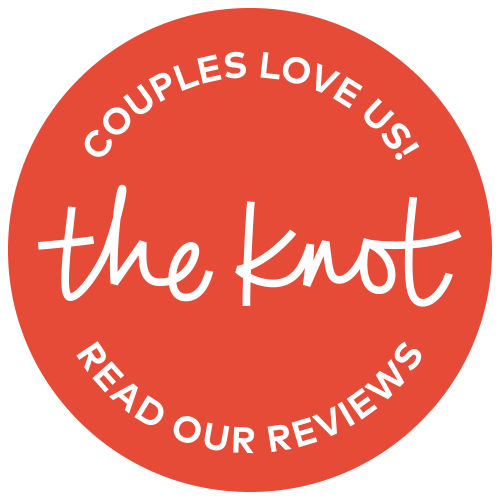=========================================================
What is Jazz? I’ve heard this question hundreds of times. You too?
Like many questions, “What is Jazz” is easy to ask but impossible to answer.
But I believe playing jazz is very similar to something familiar you do all day long, every day. Everyone can relate to this:
Having a conversation.
And ultimately this is what makes jazz the perfect choice for party music and wedding music.
.
.
Jazz is a constantly evolving style of music performance, born of wonder, excitement, and surprise. (Whitney Balliett , one of my favorite writers about jazz, called jazz the “sound of surprise”.) Tomorrow’s developments in jazz music will defy today’s definitions.
But for me, it’s particularly significant that jazz has always served a social function: to entertain people. It’s performance has always been person-to-person. A communal enterprise.
 Whenever my band plays, we always engage in a little musical conversation, to produce music that will please the people we’re playing for. We create the appropriate mood with familiar songs that suit the occasion.
Whenever my band plays, we always engage in a little musical conversation, to produce music that will please the people we’re playing for. We create the appropriate mood with familiar songs that suit the occasion.
This is what makes jazz music the perfect choice for nearly every celebration — especially a wedding or a party.
For example, here is part of the Magnolia Jazz Band entertaining people at a recent 4th of July picnic. In lively Dixieland attire. It’s usually jacket and tie or formal tuxedos for us, but not that day. Is this a conversation or what?
 By the way, while Andy and I were holding forth in the sextet above, Gary was lead the trio at another huge 4th of July picnic in a nearby schoolyard. Thank you for sending these wonderful photos, Mark Sin.
By the way, while Andy and I were holding forth in the sextet above, Gary was lead the trio at another huge 4th of July picnic in a nearby schoolyard. Thank you for sending these wonderful photos, Mark Sin.
I recently described a few observations about Learning Traditional Jazz, and a friend asked “Isn’t jazz by it’s creation improvisational in it’s core? So learning means finding that creative energy and ability to flow?”.
My long reply began, “Good question! Sorry I’m so wordy, but this is one of my hot buttons.”
Meaning that for years I’ve been really concerned about What is jazz, How do you play jazz, and How do you learn to play jazz?
Now let me elaborate on the rest of my lengthy reply.
Yes, I think jazz is improvisational, the same way a conversation is improvisational. In a conversation, we speak back-and-forth among ourselves. We don’t simply take turns reciting our pre-set lines. What we say flows from the context and elaborates what others are saying.
The same way that thoughtfully responding is the heart of a conversation among friends, it’s the heart of the musical conversation among jazz musicians.
Whatever jazz is nowadays, I believe the original spirit of jazz music lies in the comfortable “give-and-take” among the “voices”. Even if there might be only one instrument playing.
And I believe the original spirit was to play music to make people happy. Music that’s easy for people to engage with. Music to create an atmosphere to help people at whatever they’re doing, and make them feel good.
These are the two qualities of jazz music that I admire the most.
It’s just my own opinion, and some virtuoso musicians may disagree. But to my ear, their music sounds lonely and shallow, like only one side of a conversation. Like the discomfort you feel, wondering what you’re missing when you eavesdrop on half of an interesting telephone call.
Perhaps I prefer my music too simple, but I think the flash of technical brilliance often hinders jazz music. Please don’t misunderstand, I love listening to a display of amazing technique. However, for some, that’s what jazz is all about, and the more speed and dexterity the better.
But for me, all that flash interferes with expressing the heart of what I call jazz music. For me the fewer busy distractions the better, especially if they side-track the musical conversation. I prefer the technique to serve the purpose, rather than vice versa.
Don’t get me wrong. People can enjoy perfectly fine conversations in English, Chinese, Russian, and all the rest. Loud or soft, fast or slow. Republicans, Democrats, or whatever. Like they say, it’s all good.
Similarly, some jazz musicians can disregard the conversation and take turns playing with all the virtuoso technique they can muster, for their own astonishment and the amazement of their audiences. God bless them, but for me that’s not where it’s at.
Practically anything can be called jazz these days, and many reasonable people prefer different manners of playing. My preference isn’t everyone’s, but we’re all playing jazz.
Of course, this is just my opinion, and the next fellow is likely to feel differently. Where I’m coming from tells you where I’ve been, what I’m doing, and probably where I’m going.
So in my mind, LEARNING to play jazz means keeping it simple and focusing on the musical conversation. Most of the time we play all together, and there’s plenty of beautiful, rich complexity in the ensemble.
What else about playing jazz? Keep it EXPRESSIVE, as in poetry — modest and not self-conscious or pretentious. Learn to LISTEN to the other musicians, learn to REPLY to acknowledge and support their voices, and learn to HEAR our collective music, being mindful of it’s shape, energy, and (especially) the mood it conveys to the people we’re playing for.
Well, that’s my opinion, and I’m sticking with it. Sorry, I still don’t understand what “finding that creative energy and ability to flow” means. I’m sure it’s important somehow, but it’s a little too touchy-feely and groovy for my poor brain. If it means to look within yourself, I suggest instead to focus more on the musical conversation.
For me, playing jazz music is like having a conversation. And this engaging quality makes it a perfect choice for wedding music or party music.
CLICK here to tweet this post, and join our Magnolia Jazz Band fans on Facebook. You’ll receive daily tips for planning wedding and party music, and you’ll get reminders for our public events.
Thanks for reading this article. I appreciate your interest and hope you get a few good ideas here. Got one or two? I'd love to hear what you liked. Please write me a little COMMENT below. Start a conversation -- I'll reply. Promise.
By the way, does a friend need help selecting wedding or party music? Do them a favor: EMAIL this article, or SHARE it on Facebook, LinkedIn, or Google+.
And if you find my blog useful, please LIKE it, TWEET it, and SUBSCRIBE for more ideas. Use those cute little icons below.
Meanwhile, the Magnolia Jazz Band entertains at weddings and parties throughout the San Francisco Bay Area. If you are ever nearby, you’ll love catching us in action, seeing and hearing us create a great mood.
How can I help you? Call 408-245-9120 or use Robbie@MagnoliaJazz.com. Planning a celebration? Ask about our availability.






















This may sound a bit ‘childish’, and it is: I have a ‘conversation’ with my granddaughter as we add crayon to her coloring book. First her turn, then mine and back again. Unlike playing jazz for others to hear, we sit silently, spending time together communicating thru a child’s picture.
Thanks for this post, Robbie. It gave me a moment to reflect on something that no words can describe; somewhat like jazz!!
Never thought about music being like a conversation yet I remember listening to music as the musicians played off each other and really enjoyed it. Reminds me of the three tenors concert in the Coliseum where Pavarotti, Domingo and Carreras kept trying to outsing each other in a playful way on one number. Everyone was laughing with them. Yes, music is a conversation of notes rather than words.
Julieanne Case
Always from the heart!
Blog: http://www.julieannecasefromtheheart.com
Reconnecting you to your essence, joy, vitality, youth.| Healing you from the Inside Out |Reconnective Healing | AgeLoc Skin Care
http://www.thereconnectivehighway.com
I really like your description of Jazz as being a conversation…I think, for me, that all the music I enjoy listening to is that — a way of communicating, something that speaks to me, and feels to me that the artists making the music are in one accord with each other, responding to each other’s creativity and together sharing their “conversation” with me, including me in their experience. The music I have listened to that has been identified as Jazz that I enjoy is the Jazz that touches me because it is played in a way that either expresses an emotion I can feel — joy, excitement, passion or even sadness. What a blessing that you have such talent and such a desire to share it with others!
I’ve always found jazz to be intimidating, precisely because I knew it was improvisational. I didn’t even listen to it much because I thought I was supposed to understand something about it that maybe I didn’t. Your likening it to a conversation relaxes me, as I’m quite comfortable with conversation. I understand the back-and-forth nature of it, and I could appreciate that in jazz. I do tend to be impressed by dazzling technique, so I will keep in mind your point about technique serving the music rather than being the point of it.
Very interesting and informative. I would love to hire a conversational jazz band!
Judy Stone-Goldman
The Reflective Writer
http://www.thereflectivewriter.com/blog/
“Word maven loves–and learns from–ordinary life.”
I see the type of conversation you are describing as finding the creative energy and going with the flow to be honest Robbie. You are listening and intuitively answering what you are listening to? Anyway – I have conversations each and every day with my coaching clients on Louise Edington’s SNCC. I have to ‘listen’ to their answers and their personality style before responding and then respond in a manor that fits.
Louise Edington
Fabulous and Fearless
http://louiseedington.com
I had never been drawn to Jazz or appreciated it at all until I feel in love with a dancer who taught me to dance to ANY kind of music. We spent many a delightful Sunday afternoon dancing on the enclosed patio of a local restaurant to live Jazz music. My experience of it was very much as a “give and take” between the musicians, which correlated perfectly with the “conversation” of dance. This was amplified further at large Jazz events such as Sacramento and Fresno’s Jazz Festivals. I grew to love dancing to Jazz because the spirit of it called forth that same feeling of improve with my partner. And dare I say, it also called forth the need to be able to flow…to respond moment to moment.
Music has never been my forte or passion, Robbie. Yet, I was enlightened when you described Jazz as a conversation. Very interesting. I can relate though through my “conversations” in the many sports I played. Communicating with the ball, teammates and opponents. Great post!
Robbie, I have often though of music as a conversation, not just jazz either. If music is done right and done well, it will stir emotions in us and usually those emotions will lead to thoughts which lead to us answering those thoughts (albeit in our heads) but it still a conversation and as the music progresses, so does the conversation. But I do like the way that instruments “talk” to each other when listening to jazz. Sometimes you can even understand what they are saying,,certainly you can understand when the conversation is funny or sad. That is the beauty of jazz and I think you did a wonderful job of answering the question. “What is jazz”
Julie Labes: The Fun-Loving, Feisty, Fearless, Frisky, Fierce Over 50 Traveler
I have been intrigued with your question, so much so that I ordered a disk set of a lecture offered by Great Courses. Hard to define, but I like it. And if I don’t, I change the CD (or whatever).
My heart goes out to this family. I know they will never be the same. There are monsters everywhere. There was a study in North Texas of how many known sex offenders there were on some video tapes made at a kids’ soccer tournament. Police detectives watched several videos made by parents at the tournament and observed that in every shot and in every capacity, there was at least one person recognized by them as a violent sexual offender. Of course, it was illegal for any of them to be at the game, but there is not a good way to monitor all of them. They roam freely about us…sadly.
This is such an interesting concept, thinking of music as a conversation. I never thought of music like that before – either being scripted or spontaneous. I more used to the latter and not the former. But when you think about a jam session or such, that’s some of the best music you’ll ever hear, and definitely leaves you happy and feeling good!
Sharon Hiebing
Relocate Without Rose-Colored Glasses
Thanks Robbie for expanding on my comment last week. I coach Jiu-Jitsu and it is like jazz conversational in style. It’s a hard thing to teach the kids to understand, because there really isn’t one next move.
Robbie – I love what you say…tomorrow’s jazz will defy today’s definition. I think that can be said of many many things! What I said was rap is not rap of today and so forth….
At least this allows us to understand the difference in music between our generations and our children’s 🙂 Rachel
Truth be told, Robbie – I am not a big jazz fan 🙁 But I do love music of different sorts. I like the Blues alot and some of it is ‘Jazzy” in my opinion. For me, when I have an ongoing dialogue on my SNCC site coaching people, it is alot of back and forth in my mind, shifting gears for each person I coach, since no two people are different.
Also, when I run, being that it’s a very mental sport, I have a conversation with myself that keeps me going and pushing myself to go just a bit farther to accomplish a new goal.
I’m not a huge listener to jazz but when I do I really enjoy it. I’ve also listened to people improvise as well as play pre-written music. I’ve never thought of it in the ways you described. As to what do I do that’s like a conversation, besides having a conversation :-), I think my scrapbooks are like that in a way. They are not a two way conversation but a conversation with the present that in the future will be a conversation with the past. Does that make sense?
Susan Berland
A Picture’s Worth
http://www.susan-berland.com
Hi Robbie I’m not a huge jazz fan, but I do love Ramsey Lewis and anything with the Preservation Hall Jazz Band. If I were to describe jazz, I’d have a hard time doing it. But I know it when I hear it. And when it’s good, it’s very, very good. Like Ramsey Lewis.
Debbie
Finally, I am able to comment! LOL:) Jazz isn’t my first pick…but I have been exposed to a lot if it being in the business….it has great melody and is relaxing to me….I love your analogy of a conversation…because we all understant that! And, learning and playing with the other members is fantastic. I have conversations trying to figure out situations all the time with host families and au pairs….and sometimes is a guessing game! Thanks for your informative, thought provoking post.
I find jazz to be a feeling, and I love that it has so many variations. Besides, any music that highlights sax solos has my attention (especially if it’s a tenor). I love reading your posts as they transport me back to high school and traveling with our symphonic and jazz bands. Those were some great memories. As for what I do that is like a conversation, I’ll have to think about that a bit more.
Wow what a great perspective and relationship between “Jazz” and a “Conversation”. I find that when a great group of musicians come together and play off each other (regardless of style), it sparks another great conversation on the dance floor and the audience. And then you’ve got one BIG conversation going between everyone involved. Love seeing a room full of people engage and have their energy feed off of one another.
Robbie, great article!! I really enjoyed your video. I started listening to jazz after watching a movie-I can’t recall which one, and one of the characters mentioned Miles Davis & John Coltrane. I picked up the “Kind of Blue” cd out of curiosity and I was HOOKED…if I could only choose one album of all genres, Kind of Blue would do it for me (I used to say Wish You Were Here by Pink Floyd). I love jazz. I listen to jazz when I want to feel good, when I need to unwind, feel calmed, and even when I feel a little bit blue. Unlike “easy listening” jazz has bite, depth, layers, subtleties.